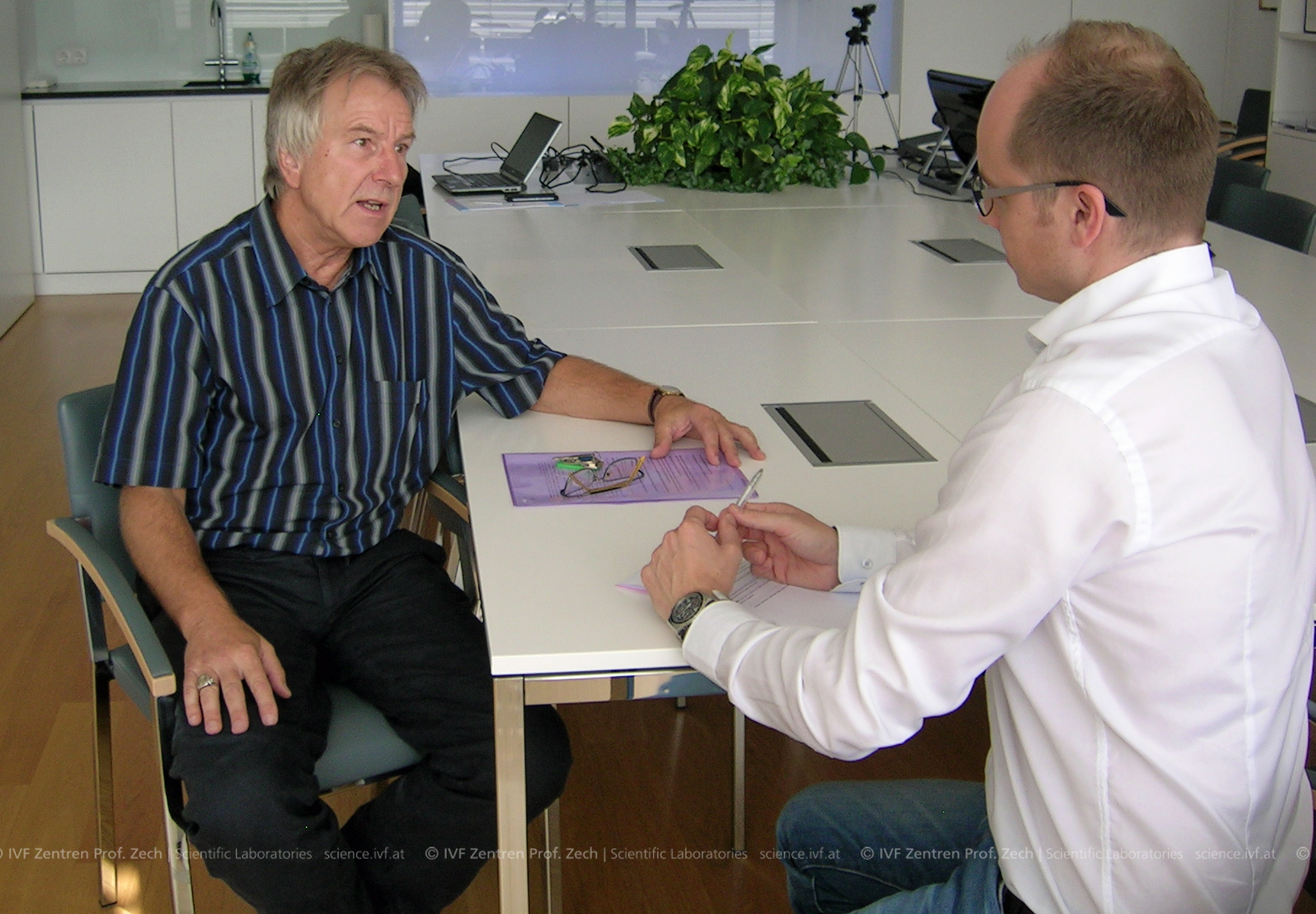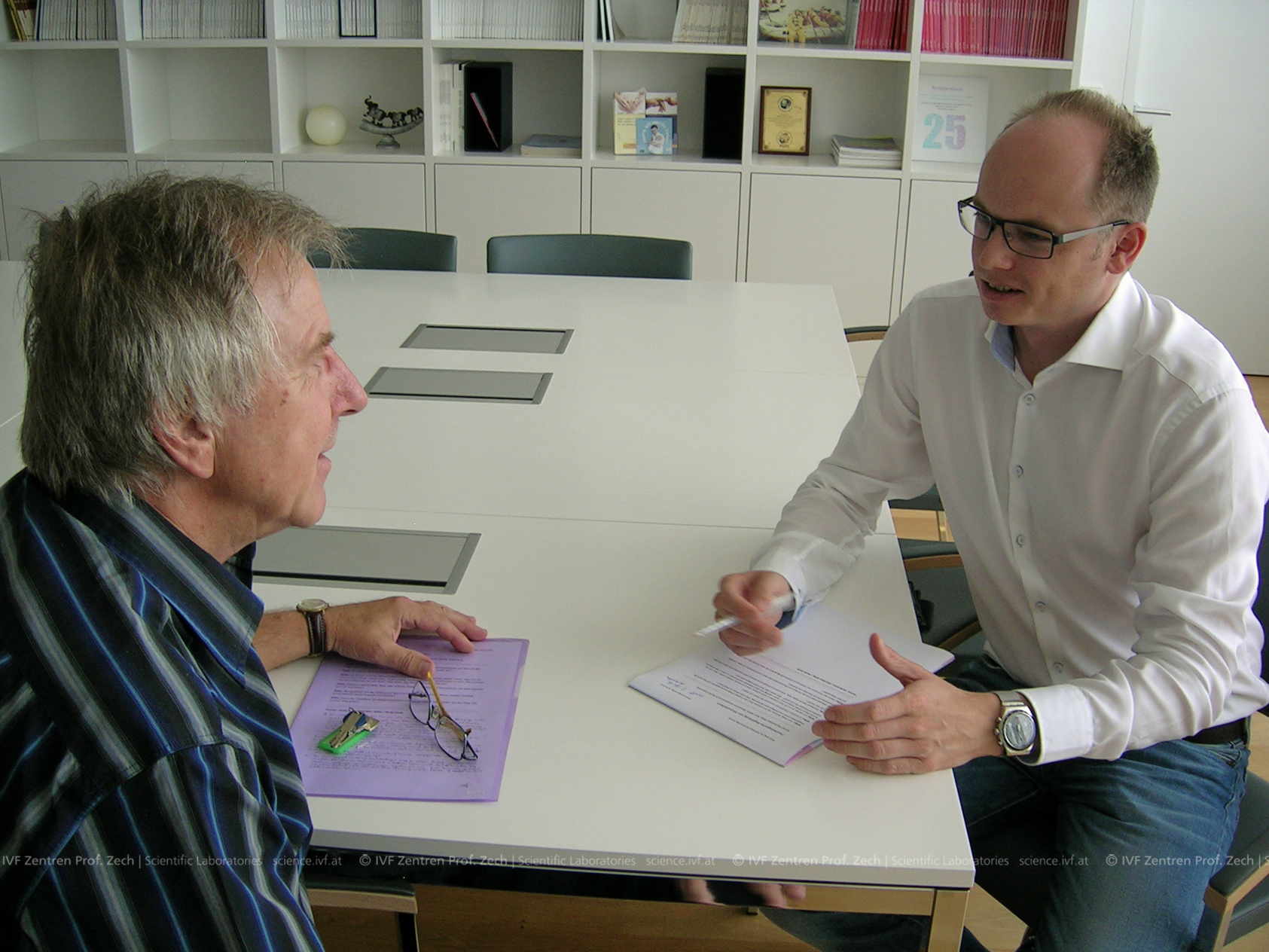Fertility-Treatment BLOG interview with clinical psychologist Mag. Karl-Heinz Brandt:
(Click here to read the first part of the interview)
Mr. Brandt, the IVF Centers Prof. Zech offer their patients the possibility to have access to psychological counseling. We have already talked about situations in which this option may prove to be very important. Now I will address in greater detail the social environment and how it may impact patients dealing with fertility issues.
Buzzword: “world wide web”. How do the couples concerned deal with information from the Internet, for instance information provided by community forums?
Mag. Brandt: Let me start with a comparison: The proverbial other side of the coin can also be observed with respect to Internet fora. Firstly, the positive side: Forums usually offer useful tips and competent assistance, and in addition give the couple the feeling that they are not alone with their concerns: “We are not the only ones being treated for this“. Exchanging experiences and information with others concerned may become very important, especially for women. The reason for this is that it is often hard for them to talk about the issue with the people in their surroundings. As their husband/partner is the only person to whom they can talk about the matter, it is often too much for him to handle. Such forums offer a valuable platform for discussion and exchange of experiences, in which women console, support and advise one another.
Let us now turn to the negative side: Theme forums may seem confusing at times, because users post their individual experiences with a strong personal and emotional touch, leaving out important aspects of the very complex issue of unwanted childlessness. Such statements can be perceived as “suggestive truths” by the readers. In this way, women can drive themselves “crazy” – which may very well be carried to extremes.
How would you describe the influence exerted on the couple by their immediate social environment, for instance by family and friends?
Mag. Brandt: There are only very few cases in which this influence can be described as positive. Mostly it is a source of frustration for the couple. This is, on the one hand, due to the fact that the subject of fertility treatment cannot be talked about openly and on the other hand because the couple is not encouraged by the supportive stance of their parents, siblings, friends, colleagues etc. Despite ongoing media coverage for more than 30 years, unfortunately, the public acceptance for artificial insemination is still very low. Couples often describe the feeling of being pressurized or suffering from a lack of understanding. They find themselves beset by poor advice, inappropriate parental support, e.g.: “Mom takes over control“ and starts looking for clinics, specialists etc. This is, however, not regarded as being particularly helpful by her daughter.
Of course, there are also situations where the future grandparents exert direct pressure on the couple: “What about grandchildren? Hurry up! We want to be grandparents.” The human environment can be very cruel.
Luckily there are some great strategies how to deal with such situations. Couples who have been instructed on these different forms of behavior often report that a great load was taken off their minds, and that they can now see a way out of their burdensome situation.

One final question: Once the decision has been taken to undergo fertility treatment, what kind of advice would you give the couple?
Mag. Brandt: I would tell them the following: Perceiving the project of “fertility treatment” as a way towards an ambitious outcome may actually become the main problem, since this may result in delaying or even preventing what you really wanted to achieve. It is not advisable to go down a road that might become a major impediment to pursuing your goal. You should forget everything you have heard so far about success strategies for your life.
Your contribution is merely to strictly comply with the treatment plan: examination appointments, injections etc. Apart from this, there is nothing else you can do in order to achieve “success”. It would be far better to see it as a project, which offers you the chance of contributing to the development of a child, and, moreover, enables you to learn a lot during this “project”.
The fact that you start fertility treatment is of course the greatest importance, since this is the only way to find out whether pregnancy can be achieved. If you do not try, you will never know whether pregnancy could have been achieved. For this reason alone, each treatment attempt is precious, showing the couple’s courage and determination by saying, “We are prepared to make a first attempt”. This deserves our greatest respect!
If you continue down this path and see it as an opportunity for new life to develop and as a chance to gather valuable life experiences, the process is kept in motion. This means that you do not lose sight of the multiple aspects of life, preventing your desire to have children from becoming an all-consuming obsession. Where there is life, unexpected and spontaneous impulses may come to the focus of our attention.
Thank you very much for the interview.
→ more articles concerning this topic in the Special »Infertility – Psychological help«
← Home
→ Contact
















